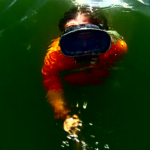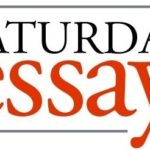Chimook Reporter
 “You don’t know me,” I quavered, barely not crying, bereft of words for explaining who the hell I thought I was to show up in that place, at that time, wanting to ask those questions. “If you knew me you’d know that … it’s just that … I mean I … I just wish you knew me, because if you did …”
“You don’t know me,” I quavered, barely not crying, bereft of words for explaining who the hell I thought I was to show up in that place, at that time, wanting to ask those questions. “If you knew me you’d know that … it’s just that … I mean I … I just wish you knew me, because if you did …”
The Fond du Lac Ojibwe School principal loomed literally and figuratively large behind his desk. I think I can remember his first name; later I may look for both first and last, but even if I knew them now I wouldn’t type them here. I’m not trying to call him out. I’m trying to express gratitude and admiration toward him and his vice-principal.
At least I think that’s what her position was. She and I sat a few feet from each other in front of the principal’s desk. They’d squared their shoulders on me. Their steady gazes and admonishment and demands for explanation felt hard. I remember some parts of the situation clearly, especially how trembly-sick and shaken I felt. I recall other parts vaguely, if at all: how long I was there; whether I said anything intelligible; whether I’d ever felt so unwanted in a place I cared about being. I was 34 years old in the moment I’m trying to describe. I’m 46 now. I expect my brain to misremember some details from then. I also trust it not to protect me in these matters.
It was late March 2005. I forget that exact date, but it was probably between the 25th and 28th. A Christian Science Monitor editor had sent me to the school—just like she’d sent freelance reporters to a few other Indian schools—to seek context and insight that would help CSM readers understand why Jeff Weise, a 16-year-old Native boy, had killed seven people and injured five on March 21 at Red Lake Senior High School on the Red Lake Indian Reservation. (Before heading to the school Weise had shot and killed his grandfather and his grandfather’s girlfriend. After police officers responding to the incident shot Weise twice, he killed himself.)
Two days after the shooting, CSM had published a 1,200-word story headlined, “School shooting: familiar echoes, new concerns.” After briefly mentioning superficial similarities among Weise and 1999 Littleton, Colo., Columbine High School killers Eric Harris and Dylan Klebold, the piece focuses much of its content on “specific challenges facing many people—and particularly adolescents—on Indian reservations.”
About halfway through the story, which is credited to three CSM reporters, a paragraph says, “Because of its setting, the shooting is almost certain to call attention to some problems specific to Indian Reservations. While incidents from Columbine to Jonesboro, Ark., demonstrate that school shootings can happen anywhere, sociologists have been concerned for years about violence among some native American teenagers, and their high rates of suicide and substance abuse.”
Throughout the piece the reporters reference statistics about prevalence of problems including fetal alcohol syndrome, low graduation rates, family trauma, lack of access to mental-health care, and violence use and survival among Indian kids.
They quote University of Minnesota Center for Advanced Studies in Child Welfare Professor Esther Wattenberg, who had been studying adolescents on the Leech Lake Reservation, not far from Red Lake: “There are certain ways in which traumatic events in the life of a child are very intense for children on reservations.”
The reporters say, “Indian leaders, however, were quick to distance the incident from specific native American issues, and to say it shocks them as much Columbine and other school shootings shocked the local communities. ‘The scary thing about this is it could happen anywhere,’ says Tuleah Palmer, director of the Boys and Girls Club in Leech Lake. ‘Red Lake was an extraordinarily secure school.’”
And they quote David Beaulieau, who at that time was president of the National Indian Education Association and is now Ruth A. Myers Endowed Chair in American Indian Education at UMD: “They’re doing a lot very well in Red Lake. When I visited [Red Lake] recently, I really sensed a strong network of support.”
The principal had a printed copy of that article on his desk.
I was living in Minneapolis, trying to establish myself as a Real Freelance Writer (which did not go well). The CSM editor had initially offered the Fond du Lac assignment to a friend of mine who couldn’t take it and recommended me. I felt grateful and excited. The editor said she wanted quotes and information from Native people that would help readers who aren’t Native understand how hard life can be, especially for kids and especially on reservations, for people who are.
She probably said something about really digging into specific challenges that supposedly define reservation childhoods. I’m sure she suggested I get ideas from the CSM article quoted above. That piece does what a lot of dominant-culture reporting about Native folks does: it trafficks in paternalistic hardscrabble-life porn that tells the same tired, self-serving single story and gets most of it wrong.
I don’t remember if I had concerns about any of that. Maybe a few. None that led me to consider rejecting the offer. I’m sure I headed to Cloquet intent on doing the job she’d hired me to do. If given the same opportunity today I’d decline it or ask if I could approach it differently from what she asked for. I hope I’d tell her that while I don’t feel comfortable gathering and spreading information that perpetuates dominant culture’s single story about Indians, I would feel okay about asking the principal if there are important stories I and the CSM could help tell, then thanking him and leaving if he said no.
I’m not indigenous. I’m white, with all the problematic cultural capital I believe whiteness entails. I claim no special understanding of indigeneity or what it means and feels like to people who inhabit it. Based in significant part on this life-changing experience that I’m attempting and will fail to convey the impact of, I’ve tried to learn as much as I can about it—about indigeneity. That learning process tells me I had no business expecting I could show up at the Fond du Lac Ojibwe school, after what had happened in Red Lake, to ask questions about how hard Indian kids’ lives are then abscond with the answers and use them to exploit instead of help the people who had shared them. I approached the job as respectfully as I knew how to. I was well-intentioned and utterly ill-equipped, and I behaved inappropriately for what the situation and setting demanded. I had no idea what I didn’t know.
I can’t remember if I called or emailed the principal to set up what I thought was going to be a few hours of interviews with him and Fond du Lac Ojibwe School teachers, staff members, students, and maybe parents. I have no recollection of the drive, walking into the building, or being introduced to anyone. I don’t know how the conversation started, what kind of pen, pad, and tape recorder I was using, and how I was trying to balance it all on my lap. I know that eventually he and the woman a few feet away were laying into me and I was feeling a destabilizing form of discomfort I’d never felt before. My only experiences of the same sensation since then have been self-imposed.
Nothing about me or my intentions mattered. No one was trying to protect me. They weren’t being unfair, just unsparing in expressing how deeply they disliked CSM’s reporting about Indian people in the March 23 Red Lake piece and other articles, and in how they viewed my ignorant intentions. There was absolutely no way, they said, I was going talk to any kid in their care if the kid’s stories would be used to maintain dominant culture’s existing single story about that kid and his future and his past and his people.
“Do you think,” the principal admonished, “these kids need to have another person coming around here asking them about how rough their lives are? You think they need another story about how dangerous and sad and depressing their lives supposedly are? Those are the only stories they ever hear about themselves from publications like this one you’re working for!” The vice-principal said some similar things. I wish my brain remembered it all.
They were working incredibly hard to protect the school’s kids and help me comprehend a wisp of things they knew I will never understand. I can’t imagine what the days after that shooting must have been like for them. Shit, I can’t imagine what the thousands of days before the shooting must have been like. That might have been part of what they were trying to show me: that while I’d invited myself there to ask questions based on the assumption I understood a few things, I actually and literally couldn’t imagine the implications of my presence or my intended questions or my ignorance and the sense of entitlement on which it was all based.
I hope some of these words I’m saying transcend my clumsiness and deficiencies and help you see what I want them to mean.
The whole situation might have lasted a couple minutes or an hour. I honestly have no idea. I was rattled. Shook. Nervous about not doing the job I’d been sent to do. Tongue-tied while trying over and over to say something like, “I’m sorry. I think I understand but I know I don’t.” I didn’t feel angry. I wasn’t scared. I just wished I knew what to say or do. I didn’t want absolution or approval. I wanted desperately for them to know my heart, and isn’t that just precious?
I don’t remember exactly how the conversation ended. It’s possible they finished when they were good and ready, then told me to leave. It’s possible I found the wherewithal to say, “I don’t want to do this if you don’t want me to do it. I’ll tell the people who hired me I didn’t get the story. They may want to send someone else, but I won’t do it.”
I was staying with friends in Duluth. On the drive there from Cloquet I called the principal to ask if I could visit him the next day and ask him to help me understand what people like me should be asking. He said sure. When I showed up at the school again he welcomed me warmly. We sat in an empty cafeteria. A cook fed us frybread, which I’d never had before. He said, “this stuff is killing my people.” I’d never heard anyone say that before. The frybread was so good.
I remember us having what felt, at least to me, like a productive conversation. I can’t remember what we talked about, but I do remember sending an email to the editor that told her about my conversations and the administrators’ concerns. I included some quotes from my follow-up visit with the principal. She was more patient than I expected her to be. I always, based on a lot of experience, expect a certain pushiness from “serious” editors and reporters. She hid hers well if she was feeling it. She paid me a generous fee for my time. She also made sure to let me know most of the other reporters got the story she was looking for. It was published March 29 of that year. It’s called “The two worlds of Native American teens.”
Recommended Links:
Leave a Comment
Only registered members can post a comment , Login / Register Here














2 Comments
hbh1
about 8 years agohbh1
about 8 years ago